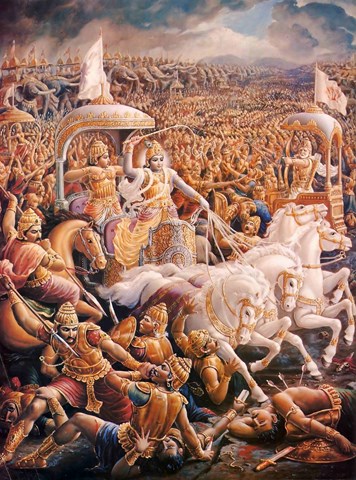 Why are you here? Do you have a purpose? Or is your life simply random—chance collision of particles and light; the perfect, yet improbable, conditions for the emergence of life, a pure coincidence? The reigning belief among materialists is that this scenario is precisely how life emerged—right place, right time—the materialist notion of a miracle.
Why are you here? Do you have a purpose? Or is your life simply random—chance collision of particles and light; the perfect, yet improbable, conditions for the emergence of life, a pure coincidence? The reigning belief among materialists is that this scenario is precisely how life emerged—right place, right time—the materialist notion of a miracle.
Some scholars, however, particularly in evolutionary biology, believe there exists a teleology within nature, a purposeful action, a reason for doing things. Birds orient toward Earth’s magnetic field via magnetoreceptors, allowing them to find their way home; molecules of life form to better dissipate energy and thus increase entropy, and the human mind does not perceive reality as it truly is, but in ways which allow it to survive.
 Many have spoken of a purpose to human life, a dharma as the yogis call it, and every person, it is believed, has their own individual dharma. Acting within one’s dharma would be the highest undertaking one could choose, as mission would dictate one’s actions. Great teachers throughout history have seen this as the answer to life—a way to rise above one’s challenges and seeming obstacles. Simply follow your dharma and you can never fail. Many people, however, are not completely aware of their life’s purpose. I believe that uncovering your life’s purpose is the greatest blessing you can receive. I have dedicated my life’s work to helping people uncover and cultivate their purpose.
Many have spoken of a purpose to human life, a dharma as the yogis call it, and every person, it is believed, has their own individual dharma. Acting within one’s dharma would be the highest undertaking one could choose, as mission would dictate one’s actions. Great teachers throughout history have seen this as the answer to life—a way to rise above one’s challenges and seeming obstacles. Simply follow your dharma and you can never fail. Many people, however, are not completely aware of their life’s purpose. I believe that uncovering your life’s purpose is the greatest blessing you can receive. I have dedicated my life’s work to helping people uncover and cultivate their purpose.
Following the path of one’s dharma is not without hardship though, an experience common to all human beings. In fact, hardship, trauma, and devastation are so ubiquitous that some of the world’s greatest teachers have addressed these with sayings, stories, and even their own lives. The simple fact is that every one of us must walk through our own personal tragedies, and we must do it alone—nobody can walk for us.
Why must we all have this experience of turmoil? Is there a purpose or is it also random?
Some would say that we have a guiding light directing us at all times, and that we have the ability to increase our connection to this source of information, or perhaps better to say that we can increase the transmission of information, as the connection is always there, only the rate and intensity of the broadcast varying. We can increase the transmission of that guiding light by using the tool of meditation.
The source of this guiding light has been called the Higher Mind, and its transmissions are received by the Lower Mind. I will spend significant time in later articles to describe what is meant by Higher Mind. Lower Mind is simply the somatic element of the mental system—the brain and spinal cord, the neurology. The sensori-emotional Lower Mind when highly charged can convolute the transmissions of Higher Mind, and so by minimizing these convolutions (through meditation and other equilibrating practices), the individual (or monad) begins to make its way toward divinity—a state of complete unity (Godliness).
To do this requires a shift from Lower Minded perceiving to Higher Minded knowing, a certainty which must be cultivated. The shift is mental, and thus perceptual, so it is of the mind—taking the individual from a perception of separateness to a knowingness of unity. The human mind’s greatest illusion is of separation in space and time, another concept we will investigate in another post.
 Another ubiquitous human experience is the rising like a phoenix from the ashes and anguish of our traumas. It is no surprise that some of the most powerful stories told are of rising, like great spirits, up to the heavens of salvation. We do rise, only to fall again, yet rise higher and higher every time we pull ourselves up, approximating the oneness of all things, in timeless, spaceless elevation.
Another ubiquitous human experience is the rising like a phoenix from the ashes and anguish of our traumas. It is no surprise that some of the most powerful stories told are of rising, like great spirits, up to the heavens of salvation. We do rise, only to fall again, yet rise higher and higher every time we pull ourselves up, approximating the oneness of all things, in timeless, spaceless elevation.
I was contemplating the work of the great philosopher, Johann Wolfgang von Goethe, titled The Sufferings of Young Werther (Norton Critical Editions)
, about a young man who falls in love with a woman he cannot have. The story follows the Young Werther as he attempts to win her heart by any means necessary as time moves on, until, upon accepting the agony of the situation, that she will never be his, he takes his own life in grief—a true tragedy of the heart. Too many people choose the Young Wether’s path, thinking they cannot rise from the ashes of their own scorched lives. But the rise is as ubiquitous as the fall. No matter how destructive your last inferno, by allowing the knowingness of Higher Mind to guide you spontaneously, and enhancing it by mind-equilibrating practices, you will fulfill your dharma with a certainty of the all-encompassing unity which paves your divine path. Uncovering purpose, following it dutifully, and allowing Higher Mind to operate freely, with trust in the unity of existence and experience, is truly the highest path one can take. History’s greatest teachers could not have all been wrong about that.



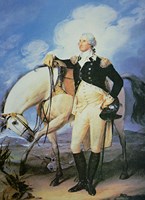



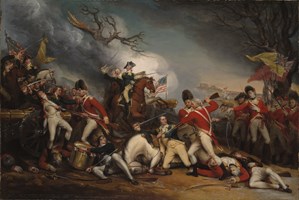

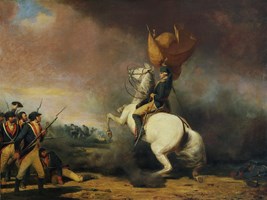








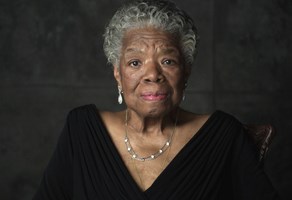 “Our findings point to the fact that finding a direction for life, and setting overarching goals for what you want to achieve can help you actually live longer, regardless of when you find your purpose,” says Hill. “So the earlier someone comes to a direction for life, the earlier these protective effects may be able to occur.”
“Our findings point to the fact that finding a direction for life, and setting overarching goals for what you want to achieve can help you actually live longer, regardless of when you find your purpose,” says Hill. “So the earlier someone comes to a direction for life, the earlier these protective effects may be able to occur.”

 This piece stirred some thought in my readers, and an excellent question came as a result: What if the flow stops flowing? What if where there was once a stream stagnancy now sits? My initial answer was that many factors could be responsible for that type of scenario, as well there being multiple solutions, each depending on the cause of the drying up. Over the next few posts I will address some of the reasons why someone’s flow might stop flowing.
This piece stirred some thought in my readers, and an excellent question came as a result: What if the flow stops flowing? What if where there was once a stream stagnancy now sits? My initial answer was that many factors could be responsible for that type of scenario, as well there being multiple solutions, each depending on the cause of the drying up. Over the next few posts I will address some of the reasons why someone’s flow might stop flowing.

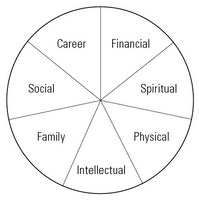 Next I focus on every aspect of life, and categorize my intentions as such. The seven aspects of life are physical, mental, spiritual, social, financial, professional and familial. I write down exactly what I would love in each one of these areas. I then write down everything I would love to accomplish in each life category. For example, every year I read or take courses that equal up to thirty books. I have an idea of what I would love to learn through the knowledge of my dharma, and so when focusing on that, it guides me to the books and courses which I will tackle in any given year. It would be highly unrealistic of me to set an intention of reading forty books in a year. It might be possible…just rather unlikely, so I don’t set my sights that high. I think setting the intention of twelve to twenty books to read is doable. But I don’t just say, “I will read 12-20 books this year.” I actually write down the titles of the books I know I will wish to tackle. Sometimes I don’t read every single book on my list, but I can tell you that I mostly do.
Next I focus on every aspect of life, and categorize my intentions as such. The seven aspects of life are physical, mental, spiritual, social, financial, professional and familial. I write down exactly what I would love in each one of these areas. I then write down everything I would love to accomplish in each life category. For example, every year I read or take courses that equal up to thirty books. I have an idea of what I would love to learn through the knowledge of my dharma, and so when focusing on that, it guides me to the books and courses which I will tackle in any given year. It would be highly unrealistic of me to set an intention of reading forty books in a year. It might be possible…just rather unlikely, so I don’t set my sights that high. I think setting the intention of twelve to twenty books to read is doable. But I don’t just say, “I will read 12-20 books this year.” I actually write down the titles of the books I know I will wish to tackle. Sometimes I don’t read every single book on my list, but I can tell you that I mostly do. In the family section, I may want to teach one of my children how to swim—and on to the list it goes. I may wish to focus on saving a certain percentage of my income—and on to the financial list it goes. I may want to dedicate a certain amount of time to social media—I don’t leave this to chance or
In the family section, I may want to teach one of my children how to swim—and on to the list it goes. I may wish to focus on saving a certain percentage of my income—and on to the financial list it goes. I may want to dedicate a certain amount of time to social media—I don’t leave this to chance or 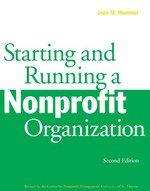 So you may have a dream of running a
So you may have a dream of running a 
